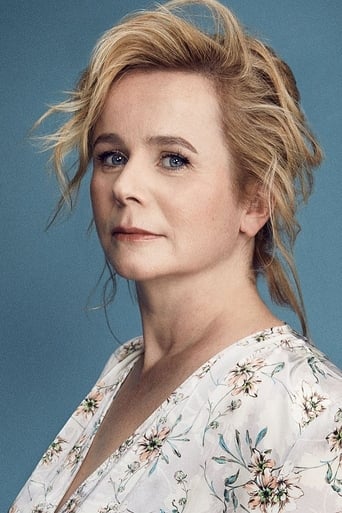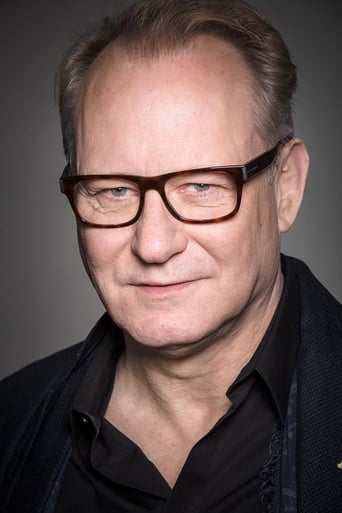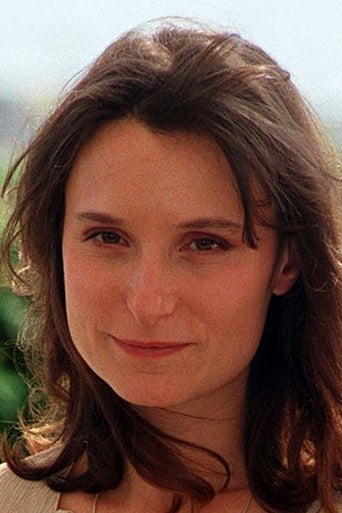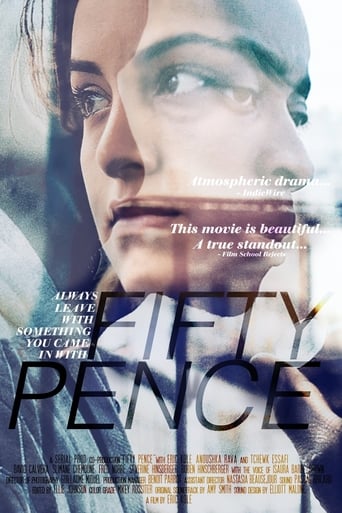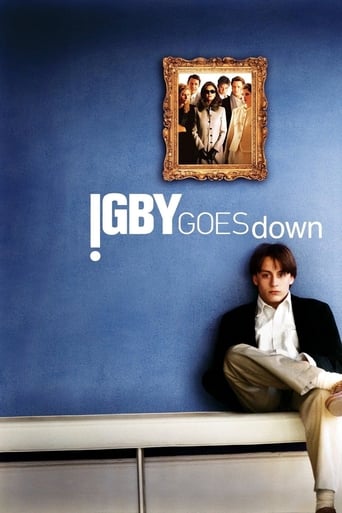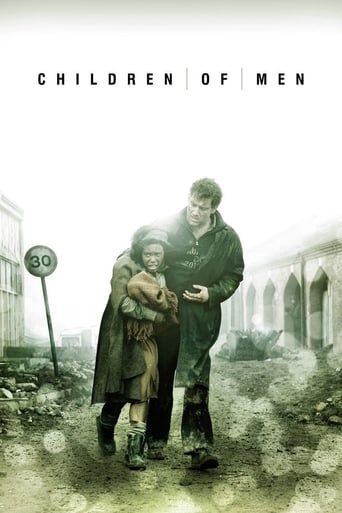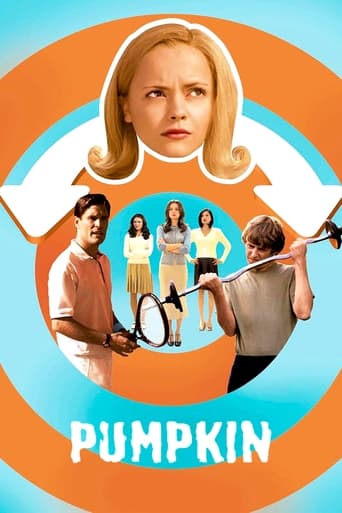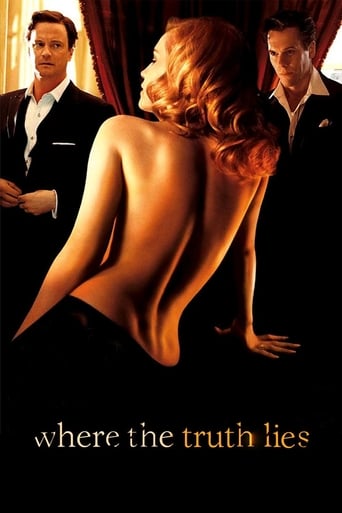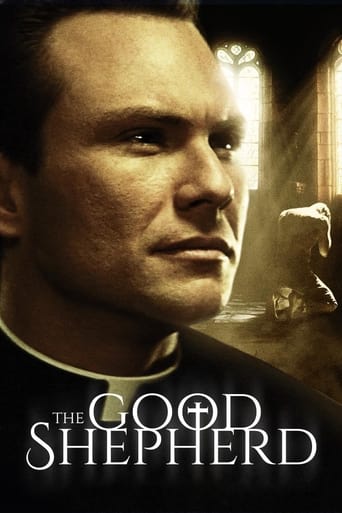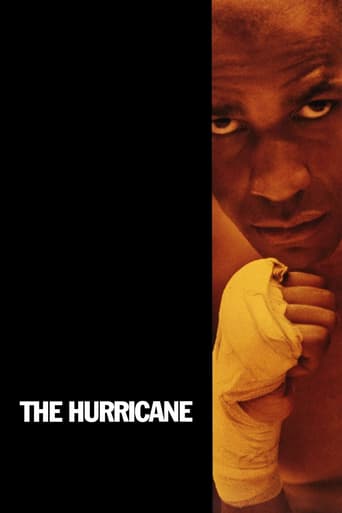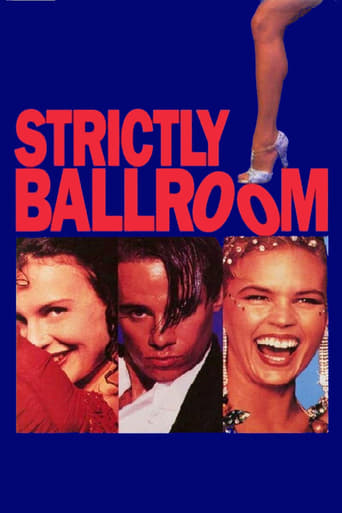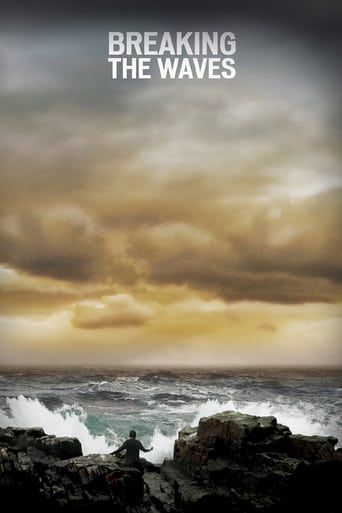
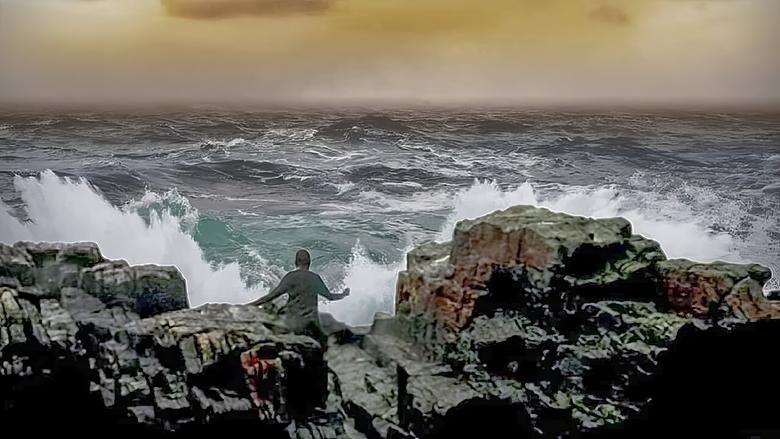
Breaking the Waves (1996)
In a small and conservative Scottish village, a woman's paralytic husband convinces her to have extramarital intercourse so she can tell him about it and give him a reason for living.
Watch Trailer
Cast


Similar titles
Reviews
The only time I watched Lars Von Trier's Breaking the Waves was...a bit over a couple of years ago. I had wanted to see it sometime before, but never got around to it. It is not a film to be watched casually; one should be ready for it. It is a lengthy film clocking in at 2 hours and 39 minutes but it was never boring nor was I expecting it to be.... It didn't really dawn on me how captivating I found it to be until after it was over. It is a deeply painful love story that is also a psychological one. Bess McNeil played by Emily Watson in her debut is so mesmerizing of a performance. She is a newlywed. It is set in the Scottish Highlands in the early 70's. The music certainly sets the tone. She is wildly in love with her husband and there are plenty of intimate moments between them early on. After their long, sensual honeymoon, he goes back to work on an oil platform. She misses him terribly; anticipating phone calls, her moody and erratic behavior. I found her so intriguing because within the span of the film she starts off so innocent and whimsical, only to descend into madness and sadness. She prays for his immediate return. The next day she finds out he has been in an accident, which has resulted in paralysis. She believes her prayer was the reason the accident occurred, that God was punishing her for her selfishness in asking for him to neglect his job and come back to her. She is devastated and I feel I am with her during her rapid, emotional descent. Fearing of never having to walk again and no longer able to perform sexually and mentally affected by the paralysis, he asks her to find a lover. As his condition deteriorates, he urges Bess to make love to other men and tell him the details, as it will be as if they are together and will revitalize his spirits. The entire village is scandalized by these doings, and Bess becomes excommunicated. I also like the character of her sister-in-law played by the late Katrin Cartlidge. She was really the only one who unfailingly stood by her. I did not expect the film to take the turn it did towards the end. I love the style of the film. It is divided into seven different chapters with psychedelic paintings and rock music interludes, one song fittingly being David Bowie's Life On Mars?, offering the audience temporary relief from the intensity of the story. The overall style is grainy and hand- held photography, which was heavily influenced by the realist Dogme 95 movement, of which von Trier was a founding member. I appreciate that type of method and this was before it became commonplace as it is now.
As happens so often Emily Watsons debut movie sees a totally unself conscious ability to craft the part better than any experienced actor could. Luckily she is supported by a cast who all excel too, Katrin Cartlidge is amazing. The story is authentic and grittily observed and the direction clearly gets the very best from all of the actors in order to tell the story in the best way. My only criticism is the awful, ridiculous, drunken photography that you simply can't call art, or cutting edge, or new technique, or anything else other than...awful. It actually spoiled the film for me and it would easily have gotten a 9.5 from me if they'd filmed it properly. Watch it though...you won't be sorry if you love good acting and good story telling. A fabulous movie from the totally overrated Lars von Trier, would never have guessed that.
"Breaking the Waves" is an emotionally potent (though rather heavy) romantic drama for its first half and then a cruel exercise in sadistic torture for its second. What starts as a relatively normal drama about a newly married couple struck by tragedy when the husband is paralyzed in an oil rig accident transforms into something much more intense, upsetting and emotionally manipulative. Von Trier is obviously known as a provocateur, and this film is no different. I guess what surprises me is that most people seem generally moved by this film. While I'd agree with that in relation to its first half, which feels very genuine and humanist, it's second half is something else entirely.For a long time it's about the undying power of love in the face of physical hardships and it is very touching. Then one scene changes the films entire course and sends an already very heavy emotionally draining drama straight into the pits of hell. Character actions stop making sense, our protagonist goes down an easily avoidable path of self- destruction in a misguided attempt to save her husband, and the audience is dragged through the mud in increasingly uncomfortable, and sometimes absurd ways. By the time the wife decides to go back a second time to this mysterious rape boat owned by Udo Kier as a means of curing her husband (it's as odd as it sounds), you know you're not really watching the same film.I've enjoyed many of Von Trier's movies, and while this review might sound on the contrary, I enjoyed this one a lot too. I watched it on blu ray and it looked fantastic. Say what you will of Von Trier's visual aesthetic (which, with its grainy hand-held photography, is admittedly exhausting), the new high definition transfer really brings out the depth and raw beauty in his images. It is not a sloppy looking film as some have argued.What is most unsettling about Breaking the Waves is how it just kind of dramatically explodes halfway through, and while I don't really find it very moving (it's too sick and mean-spirited to feel very genuine, especially it's appalling "happy" ending), it is fascinating and absorbing all the way through. I don't think it quite works, but I appreciate its willingness to take the audience on an excruciating journey and let them ponder on such interesting topics as religious faith and the power (or absence) of God. Emily Watson is a revelation and Bess is a fantastic character. Even when Von Trier manipulates the narrative in the cruelest and most unnecessary ways just to further torture this poor woman, she still anchors the entire film. I do feel like the second half betrays her character to some degree, but it's still a perfectly modulated performance from beginning to end. She has two standout scenes in the second half that I find very troubling, but also undeniably powerful.My final point is that Lars Von Trier is insane and while this is one of his more normal looking movies, it is anything but. Proceed with caution.
Tragedy strikes again. What else could I expect from Breaking the Waves, one of the three films in the 'Golden Heart Trilogy' by Lars von Trier? Well, I certainly knew what was waiting for me: the trilogy's concept is to take something beautiful and innocent and completely destroy it, causing real heartache to the viewers – so I kinda knew that I'd be watching two and a half hours of suffering. But Breaking the Waves surprised me, and wasn't predictable as I thought: in fact, it's another great film from the Danish director that, this time, added a religious touch to the tale.Breaking the Waves is about Bess McNeill (Emily Watson), a young woman who marries Jan Nyman (Stellan Skarsgard) and falls madly in love with him. She's a very innocent, pure of heart and deeply religious person, with a past of psychological issues. When Jan has to leave for work, Bess feels very depressed and struggles to live without him. She starts praying that he returns to her as soon as possible, and that's when everything starts to go downhill. Jan is sent home early because of an accident that causes him to remain completely paralyzed. Unable to perform any movements (including sex) and as his health gets worse, he asks Bess to sleep with other men, convincing her that this will keep him alive because it will be as if the two of them were making love. Bess believes that his return and his request are all God's actions for the good of everybody, so she listens to him: soon, she finds herself in a very difficult and painful position.As I said before, von Trier's goal here is to cause you pain while watching the movie. It makes you pretty uncomfortable and always waiting for the worst to happen – but maybe that's just me. I had the constant feeling that something bad was just waiting around the corner and the movie ended up creating really awful situations – even though I thought it would be displaying much worse scenarios. To make a comparison, it wasn't as harsh as Dancer in the Dark was. Both featured amazing acting (especially by the female protagonists) and very good directing, but Dancer in the Dark featured more tragedy, with a crueler finale. I felt like the world was being much harsher to Selma (Dancer in the Dark's protagonist) and she couldn't do anything about it, while Bess could've had some control over the story hadn't she been that innocent, naive and religious. But that's what's special about Breaking the Waves: it heavily features the religious element.I personally quite enjoyed the religious elements in the movie (despite not being a religious person). The protagonist prays to God every day, and believes in Him to the point that she is convinced God answers her prayers through her own voice. The scenes in the movie where she prays and 'talks' to God can get really creepy. Bess thinks that some things, that happen in the movie, did so because she asked God to make them happen, and when those things are bad she feels guilty. But guilt is a feeling she often displays. What made the movie even worse (for Bess, but better for the viewer) are the surroundings and the location. The film is located in the Scottish Highlands, in the early 1970s: a very conservative place, where everything is church-based and God-centered, and that is the reason for Bess' strong faith. Since the town's people and the priests are very conservative and harshly judge her actions, this leads to her being eventually cast out of the church community and her own family as well. I felt some kind of irony here, that von Trier intended to portray: even if your actions are for the good, even if you deeply believe in God and you do everything for him and the people you love, even if you're selfless and would do anything for love – you will still be judged by the Church and the 'interpreters of God's word'. I think von Trier wanted to show the rotten side of the Church, the fact that it doesn't represent true religion anymore and it divides the faithful in two: the ones who base their faith on the Church, and the' true believers'.The film features many unexpected turns and, despite being an overall tragic movie, some of those turns were very pleasant and light hearted. The movie's unpredictability is one of the things that made the whole experience even more enjoyable. All in all, I liked it very much. Every aspect of it was good, from the directing, to the writing, to the superb acting especially, and it's another example of von Trier's masterful skills as a director. It's admirable how inventive von Trier can be: by using the same theme (the destruction of something beautiful) he manages to create completely different situations and develop them in different ways, always causing a huge impact on the viewer. This wasn't a light experience, but what usually makes a movie even better for me is the fact that it's challenging – and von Trier's movies are always good challenges.Rating: 8/10 Read more at http://passpopcorn.com/


